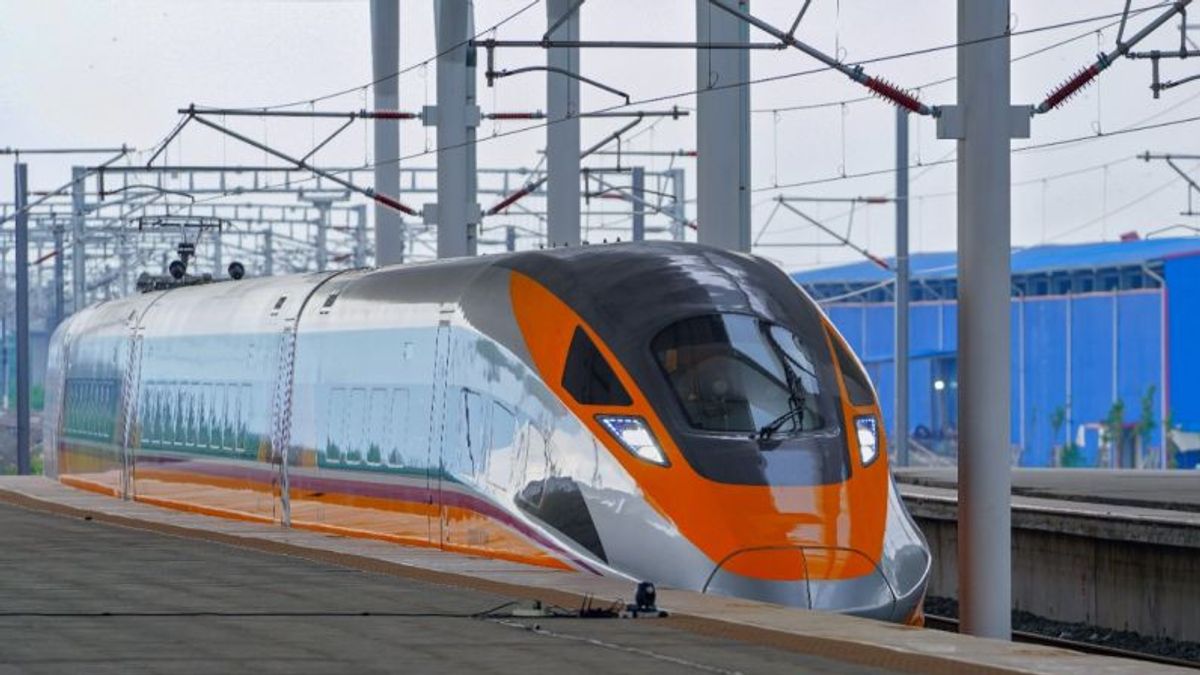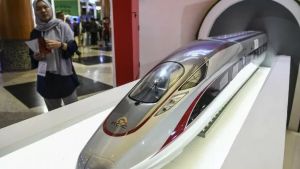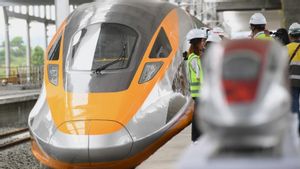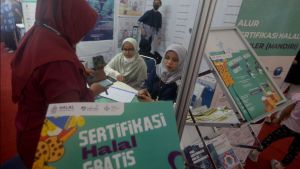JAKARTA - The government is targeting the Jakarta Bandung Fast Train (KCJB) project to start operating in July. Currently, the progress of the project is 84 per cent.
The spokesperson for the Ministry of Transportation, Adita Irawati said, the remaining projects currently being worked on were the most difficult part. One of them is related to frequency.
"And when talking about progress, KCIC reports that it has reached around 84 per cent and the hope is that it can be on track the remaining percentage is indeed the most challenging because it has to do with integration issues. Including signalling and frequency", he told reporters, Wednesday, February 15.
For your information, the Ministry of Transportation collaborated with two consulting companies from England, namely, The Crossrail International and PT Mott Macdonald Indonesia to ensure the operational readiness of the Jabodetabek LRT to KCJB last month.
Adita explained, the two British consulting firms would also assist in the process of working on the most difficult part of the KCJB project.
"We are asking for consultations related to technical operations, including in this case about signalling, and all kinds of things, so far we have no experience in the country and that's what we are doing", he said.
Previously, Minister of Transportation Budi Karya Sumadi explained the reasons for choosing a British company.
He said this was because the country had a good experience in building railway infrastructure with various technologies and innovations.
"We can use the knowledge, skills and expertise we have to transfer knowledge and transfer technology in the railway sector", he said in an official statement, Monday, January 16.
The two projects, both the Jabodebek LRT and the Jakarta-Bandung Fast Train, both use high technology.
The Jabodebek LRT was developed with Communication-Based Train Control (CBTC) and a level 3 Grade of Automation (GoA) system, which allows the Jabodebek LRT to be operated without a driver.
Meanwhile, the Jakarta-Bandung Fast Train (KCJB) uses GSM-R technology, the first time it has been used in Indonesia.
Budi said, the cooperation between Indonesia and the UK, especially in the transportation sector, had been well established. One of them is the development of the Jakarta MRT project through the signing of a Letter of Intent (LoI) which was carried out in 2022.
"With the cooperation of the Jabodebek LRT pre-operational consultation and the Jakarta-Bandung Fast Train, it is hoped that this will further strengthen the cooperative relationship between the two countries", he said.
Budi said that England is one of the countries that have good experience in building railway infrastructure with various technologies and innovations.
"We can use the knowledge, skills and expertise we have to transfer knowledge and technology in the field of railways", he said.
The two projects, both the Jabodebek LRT and the Jakarta-Bandung Fast Train, both use high technology. The Jabodebek LRT was developed with Communication-Based Train Control (CBTC) and a level 3 Grade of Automation (GoA) system, which allows the Jabodebek LRT to be operated without a driver.
SEE ALSO:
Meanwhile, the Jakarta-Bandung Fast Train (KCJB) uses GSM-R technology, the first time it has been used in Indonesia.
Budi said, the cooperation between Indonesia and the UK, especially in the transportation sector, had been well established.
One of them is the development of the Jakarta MRT project through the signing of a Letter of Intent (LoI) which was carried out in 2022.
"With the collaboration of the Jabodebek LRT pre-operational consultation and the Jakarta-Bandung Fast Train, it is hoped that this will further strengthen the cooperative relationship between the two countries", he said.
The English, Chinese, Japanese, Arabic, and French versions are automatically generated by the AI. So there may still be inaccuracies in translating, please always see Indonesian as our main language. (system supported by DigitalSiber.id)










